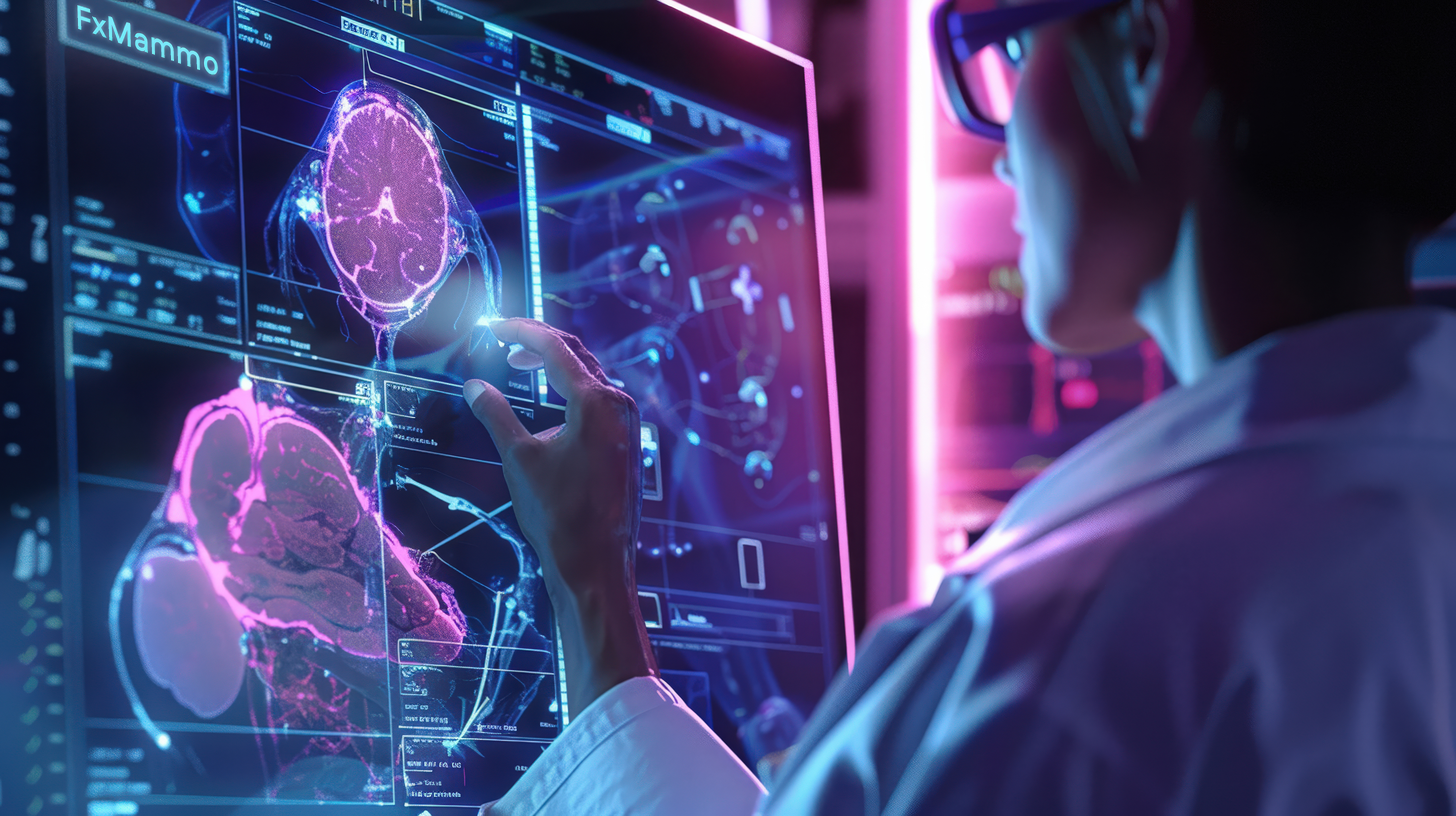An AI-powered radiological computer-assisted detection software,
co-developed by A/Prof Mikael Hartman,
improves the speed and accuracy at which breast cancer is diagnosed.
Issue 5 | June 2024

 Subscribe and ensure you don't miss the next issue!
Subscribe and ensure you don't miss the next issue!
The World Health Organisation reported that breast cancer was the most prevalent cancer in women across 157 countries out of 185 in 2022. Early detection remains a cornerstone in combating this disease—as most patients exhibit no symptoms in the initial stages.
Despite the importance of screening, fewer than 40% of Singaporean women (aged 50 to 69) had gone for a mammography in the past two years, according to the National Population Health Survey 2022. The inherent limitations in existing technology disincentivise them from doing so.
Mammograms, which paint a monochromatic picture where both dense breast tissues and potential anomalies register as similar shades of white, often make tell-tale signs of breast cancer indiscernible. This can complicate detection, delaying diagnostic reports for weeks. Mammograms also risk missing 20% of breast cancers present at the time of screening. Such delays and uncertainties fan anxiety among women.
Against this backdrop of diagnostic challenges, A/Prof Mikael Hartman, Head & Senior Consultant, Division of General Surgery (Breast Surgery), Department of Surgery, National University Hospital (NUH), has been intimately involved in the development of FxMammo, an artificial intelligence (AI)-enabled tool designed to enhance the accuracy and efficiency of breast cancer screening through advanced image analysis.
The keen AI of FxMammo
“Unlike traditional methods, today’s mammogram images are digital, which opens up new possibilities for more efficient analysis,” says A/Prof Hartman. “With advanced AI tools and some powerful number-crunching, coupled with a sea of data for training, we developed FxMammo with the hope that this technology would give us an edge in beating breast cancer.”
Think of FxMammo as an experienced assistant who pores over mammogram images with a very keen eye—or rather, AI. Detecting subtle variations is no sweat for this assistant. Picking up anomalies in dense breast tissue, often overlooked by the human eye, is a walk in the park. Once the assistant identifies suspicious areas, its binary-coded brain generates a detailed report, highlighting these concerns clearly and succinctly for further review by a (human) radiologist.
The benefits of FxMammo are manifold. It significantly shortens the diagnosis time, reducing the waiting period from weeks to mere minutes. This rapid turnaround is crucial for early intervention—which in turn alleviates the anxiety associated with prolonged waiting times for results. The AI-powered technology has also been proven to reduce the rate of false positives by over 20% and decrease false negatives by more than 38%. These improvements not only enhance patient outcomes but also build crucial trust in breast cancer screening processes, which could encourage higher participation rates among the target demographic.
Moving from bench to bedside
FxMammo is currently undergoing rigorous research at NUH, ensuring it meets—and exceeds—the stringent requirements of clinical efficacy before implementation in in-patient services.
When it comes to adopting new technologies, A/Prof Hartman says that “initial resistance is understandable as past experiences with earlier computer-assisted diagnosis systems were frequently marred by high rates of false positives and diagnostic noise.”
The developers of FxMammo have designed this technology with those past challenges in mind. It is engineered to seamlessly augment the current mammogram process without disrupting established workflows.
“The initial scepticism from radiologists has begun to dissipate as they recognise the tool’s ability to discern features in mammograms that previously went unnoticed,” says A/Prof Hartman. “I look forward to seeing FxMammo prove its worth in NUH’s clinical trials and eventually aid in the global fight against breast cancer.”
Like this article? Simply subscribe to make sure you don't miss the next issue of EnvisioningHealth!




















